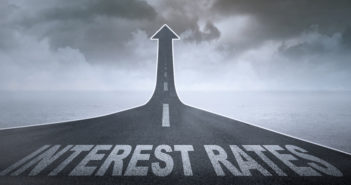- President Trump continues upping the ante against the Fed’s policy and his pick for Chair.
- The central bank is set to defend its independence and has less room for flexibility.
- The US Dollar could benefit, and Trump’s efforts on trade could suffer.
US President Donald Trump criticizes the Federal Reserve each time the stock markets falls. He blames the central bank’s tightening for the downfalls in equities and disowns his own policy on trade. Both factors are weighing on stocks.
He gradually increases his criticism, and his latest missive was to say that he “maybe regrets appointing him to the post.” Moreover, he explicitly told the Wall Street Journal that he was intentionally sending a direct message to Powell that he wanted lower interest rates.
The comments follow previous colorful statements. The President said that the Fed is “out of control” and “going loco.”
Fed reaction
Various Fed officials have fiercely defended the independence and shrugged off Trump’s words. They noted that these were “unusual” comments by the President and that they will continue fulfilling their mandate.
With growing criticism, will the Fed succumb to pressures and change its policy? Some may want to please the President while others would like to receive a promotion in the future.
However, it is safe to assume that the vast majority of FOMC officials believe that central bank independence is sacrosanct, and therefore will decide to ignore these pressures. Most are likely looking to maintain their reputation to their post-Fed stints and the post-Trump era.
And what happens if the economy slows down or inflation falls? In these cases, the Fed will have good reasons to alter their policy. They may indicate fewer rate hikes or end the tightening regime altogether.
However, with Trump’s incessant comments, Chair Powell and his colleagues may hesitate before taking a dovish turn. It may be seen as surrendering to pressures from the White House and not a clean policy reaction.
All in all, the Fed is more likely to harden its policy rather than loosen it as a response to Trump’s words.
USD and trade implications
The US Dollar reacts positively to tighter monetary policy, whatever the reasons. Higher rates support the greenback. In case the FOMC continues sticking to its guns even if the US economy stutters, the Dollar could get an extra boost from safe-haven flows moving into the greenback.
The President’s words may also backfire on trade policy. A more robust exchange rate means exports are less attractive and imports are becoming cheaper. The strength of the Dollar also means a weaker Chinese yuan. A more favorable exchange rate favors Chinese exports and mitigates the effect of the tariffs.
Bringing down the deficit becomes harder under these conditions, and Trump certainly wants a narrower trade deficit.
All in all, Trump’s criticism is counterproductive for his goals and the economy but positive for USD bulls.
More: Trade wars: Only a stock market crash can stop Trump, 3 reasons
Get the 5 most predictable currency pairs
